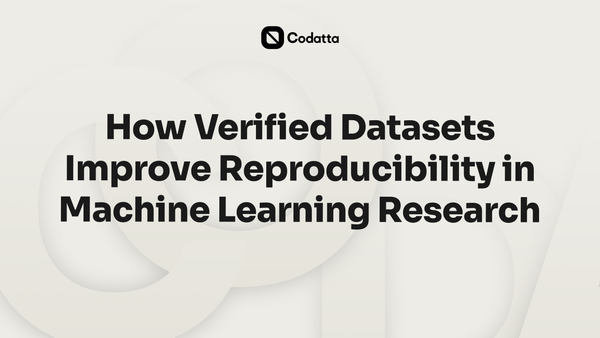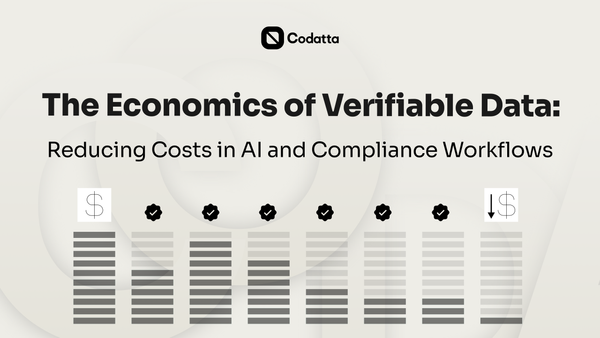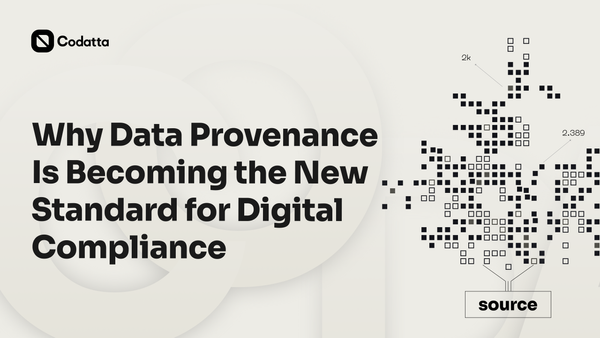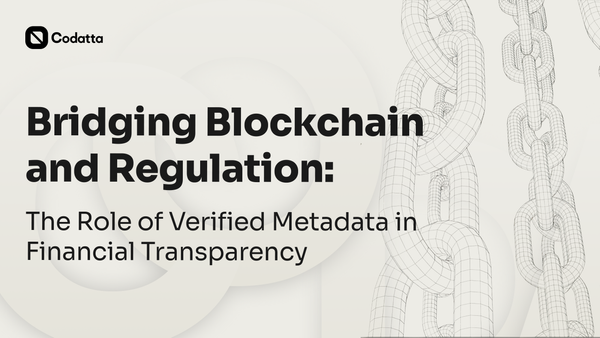Real-World Applications of AI-Ready Data
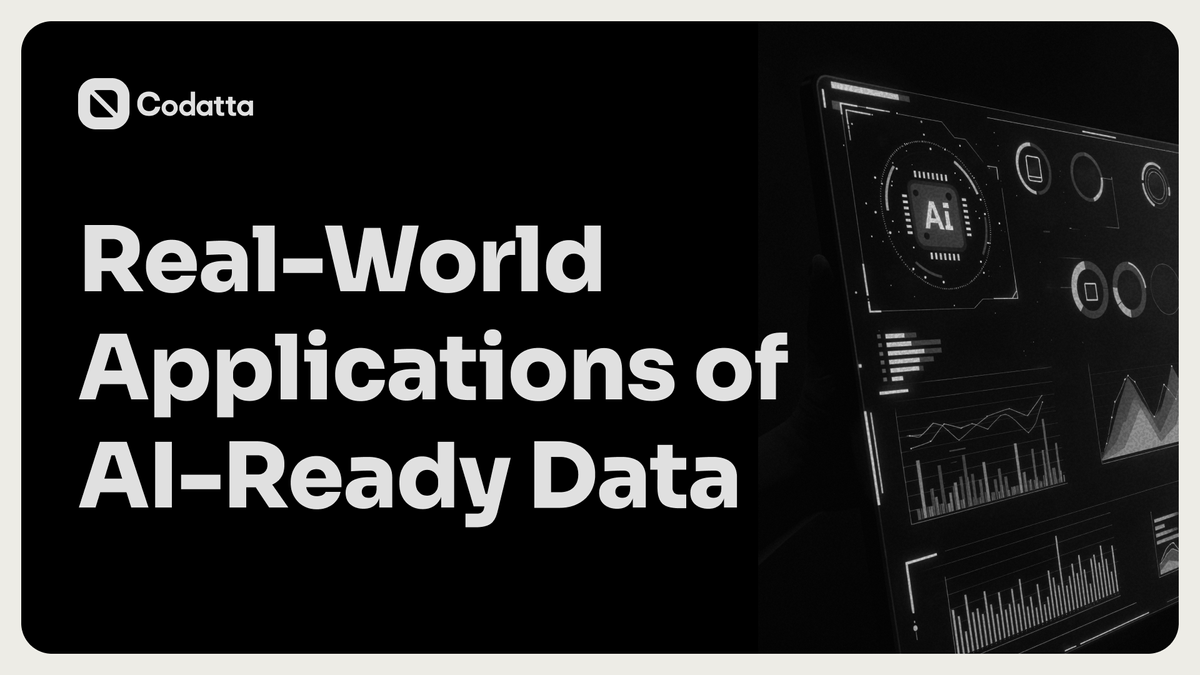
AI depends on the quality of its inputs. For an AI model to deliver reliable outputs, the data must be structured, annotated, and provenanced — in other words, AI-ready data. Without that preparation, AI systems struggle to scale, and even the most advanced AI tools fall short.
AI-ready data ensures that data pipelines provide high-quality data for training, real-time use cases, and enterprise AI workloads. From financial data to customer data, improving data access and data infrastructure is what makes trustworthy AI possible.
In this article, we’ll look at real-world AI applications and use cases that show why AI readiness matters, and how stronger datasets make scalable AI projects and AI initiatives more effective. Read on to see how.
Healthcare: Diagnostics and Medical Research
In healthcare, AI-ready data is essential for accurate diagnostics and medical research. Medical imaging, from radiology to cancer detection, depends on high-quality data that can be trusted. Without clear data lineage and strong data management, AI projects fail because unstructured data and raw data weaken accuracy.
When data collection follows the principles of AI-ready data — structured, validated, and secure — it enables AI to process and analyze data effectively. This improves AI model performance and ensures your data supports reliable and trustworthy AI outputs. For example, AI agents trained on accurate data can assist doctors in spotting early signs of disease faster than traditional methods.
Healthcare generates vast amounts of data from multiple sources, and investing in AI-ready data accelerates AI adoption by reducing errors and supporting data security. Provenance and traceability help ensure your data is ready for AI by protecting patient information, closing data silos, and aligning with AI governance. This kind of data readiness provides a foundation for scalable data use and supports the entire AI lifecycle in medical research and diagnostics.
Finance: Fraud Detection and Risk Management
Financial institutions rely on clean datasets to run transaction monitoring and AML systems. Poor data quality can make even the strongest AI solutions ineffective, while accurate databases help ensure data is reliable enough for fraud detection.
In this sector, AI-ready data is one of the most practical AI use cases. It allows generative AI and other tools to detect suspicious activity, highlight unusual patterns, and support compliance requirements. By focusing on data quality and preparing datasets properly, banks and regulators can ensure data works as intended and reduce the risk of errors in fraud detection or risk management.
Supply Chains & IoT
In supply chains, AI-ready data makes predictive maintenance and logistics optimization possible. IoT devices generate real-time data that, when combined with provenance, gives enterprises reliable insights they can act on.
Traditional data systems often struggle to handle the volume of enterprise data spread across suppliers, warehouses, and transport networks. AI capabilities improve when this information is structured and used to train AI models that can forecast delays, identify risks, and streamline operations.
AI training on data across multiple sources ensures that results are accurate and scalable, helping organizations move from raw information to practical improvements in efficiency and resilience.
Scientific Research & DeSci
In research, AI-ready data must be open and verifiable to be useful. Life sciences and decentralized science (DeSci) depend on reproducibility, and that requires datasets with clear provenance that researchers can trust. Without this, results are difficult to validate or build upon.
AI helps analyze large volumes of data from genomics, clinical trials, and laboratory experiments. Yet the value of these outputs depends on the accuracy and structure of the inputs. AI-ready data provides a foundation for reliable data analysis, making advanced data easier to compare, reuse, and share across different research teams.
Open datasets have already proven their impact. Initiatives like the Human Genome Project showed how global collaboration on structured data can accelerate discovery. More recently, during COVID-19, open clinical trials and viral sequencing data allowed AI systems to support vaccine development and drug repurposing at speed. These examples show that AI-ready data is not only a technical requirement but also a driver of progress in public health.
DeSci adds another dimension by using blockchain for data provenance, traceability, and incentives. Projects in this space experiment with tokenized rewards for data contribution, transparent peer review, and decentralized repositories where results cannot be altered or hidden. This shift aims to close gaps in traditional publishing models and make advanced data available to wider research communities.
By combining AI-ready data with DeSci practices, researchers gain access to trustworthy inputs while contributors retain recognition for their work. This creates conditions where reproducibility improves and collaboration extends beyond single institutions.
Codatta’s Role
Codatta makes blockchain metadata usable by providing annotation, provenance tracking, and confidence scoring. Contributors tag addresses and add context, while the protocol records this on-chain to protect integrity and improve data accuracy.
AI-ready data is critical because data is the fuel for machine learning and AI. High-quality data is essential for applications like blockchain risk analysis, fraud detection, or demographic annotation in Web3 apps. By focusing on provenance and accuracy, Codatta provides structured data for AI and Web3 without the duplication and opacity of traditional systems.
Contributor rewards keep the ecosystem active, ensuring that those who supply high-quality data also benefit from its ongoing use. This model helps align incentives and supports AI success by ensuring the right data is available for real projects.
Final Thoughts: Real-World Applications of AI-Ready Data
Data readiness for AI is no longer optional. Without it, even the most advanced tools fall short. Ensuring your data is AI-ready is what makes AI innovation possible and allows people to use AI in their daily work with confidence.
Community-driven platforms like Codatta make data structured, traceable, and usable, turning raw inputs into resources that support real projects. When contributors help make data reliable, the results extend across sectors, from finance to research.
The message is simple: discover why AI-ready data is the foundation of progress. Reliable inputs lead to better outcomes, and Codatta shows how that can be achieved in practice.

